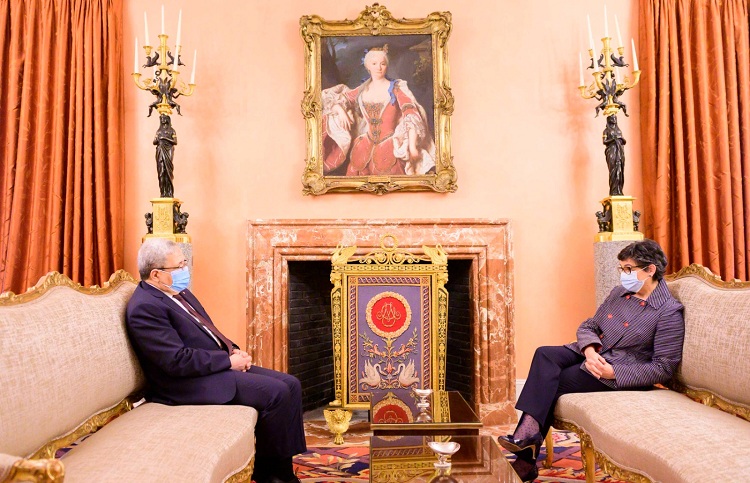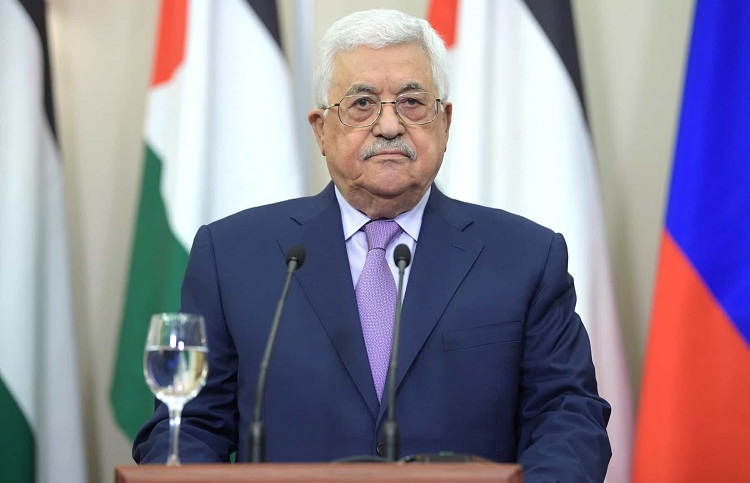Eduardo González
The Minister of Foreign Affairs, Arancha González Laya, received yesterday in Madrid her Tunisian counterpart, Othman Jerandi, with whom she addressed the situation of the nearly 700 Tunisians who have been trapped since 2019 in the Temporary Stay Center for Migrants (CETI) in Melilla under the risk of being deported.
During the meeting, with which Jerandi returned the visit made last September by Gonzalez Laya to his country, the two ministers addressed, among other issues, cooperation in the fight against terrorism, support for the current transitional government in Libya and the holding of elections in this country later this year and scientific cooperation between the two countries as “a way to respond to the pandemic”, as the minister explained at the joint press conference following the meeting, held at the ministerial headquarters of the Viana Palace. For his part, the Tunisian minister defended the search for “new avenues of cooperation beyond the classic channels” and expressed his country’s wish that the President of the Government, Pedro Sánchez, could travel to Tunisia as soon as possible to explore the expansion of bilateral cooperation and “identify the sectors that could benefit from it”.
One of the issues addressed during the meeting was migration, very specifically that of the more than 700 Tunisians who have been trapped since 2019 in the CETI of Melilla. “We must find a quick solution to this problem that worries us”, explained Othman Jerandi, who, in addition to the Minister of Foreign Affairs, is also Minister of Migration and Tunisians Abroad.
According to Gonzalez Laya, “some have asked for asylum status in Spain, but Spain does not recognize it for Tunisia, a democratic country where freedoms are respected”. Therefore, “the objective is to respond to these irregular migrants in Melilla starting with those who have asked to return to their country, supporting, through the International Organization for Migration (IOM), their economic reintegration upon their return to Tunisia”, continued the minister, who specified that, for the moment, there is no precise figure on those who have expressed their desire to return to Tunisia. However, she assured, “it will increase as these citizens understand that they have no possibility of remaining irregularly in our country”.
For his part, Jerandi also reported that the two governments have decided to “repatriate those who voluntarily want to return with all the guarantees of the IOM”, while waiting to “see how they integrate into the productive fabric of Tunisia”, where “they could form startups or SMEs that allow them to find happiness in Tunisia”. “We are going to start with a group of people who want to return by their mere will, and when the others see that their prospects are better, they will surely also want to return”, he added.
Tunisian migration to Europe spiked sharply in 2018, against a backdrop of political instability and high youth unemployment in his country. Because of worsening travel conditions in the central Mediterranean, the number of Tunisians arriving in Melilla rose from 9% in 2018 to 22% in 2019 and, since then, more than 700 Tunisians have been held in the CETI of this autonomous city.
In April 2020, the Minister of the Interior, Fernando Grande-Marlaska, announced during a press conference that the Government was negotiating with Tunisia a mass deportation of the people blocked in Melilla. The Interior Minister returned to this issue in October, during an official visit to Tunisia where he was received by his counterpart and the Prime Minister. However, the Tunisian government has assured that it will not accept the mass deportations announced by Spain. Tunisia has not signed any repatriation agreement with Spain or the EU, which makes such deportations impossible, and the fourth Protocol of the European Convention on Human Rights (ECHR) expressly prohibits collective deportations of foreigners.







